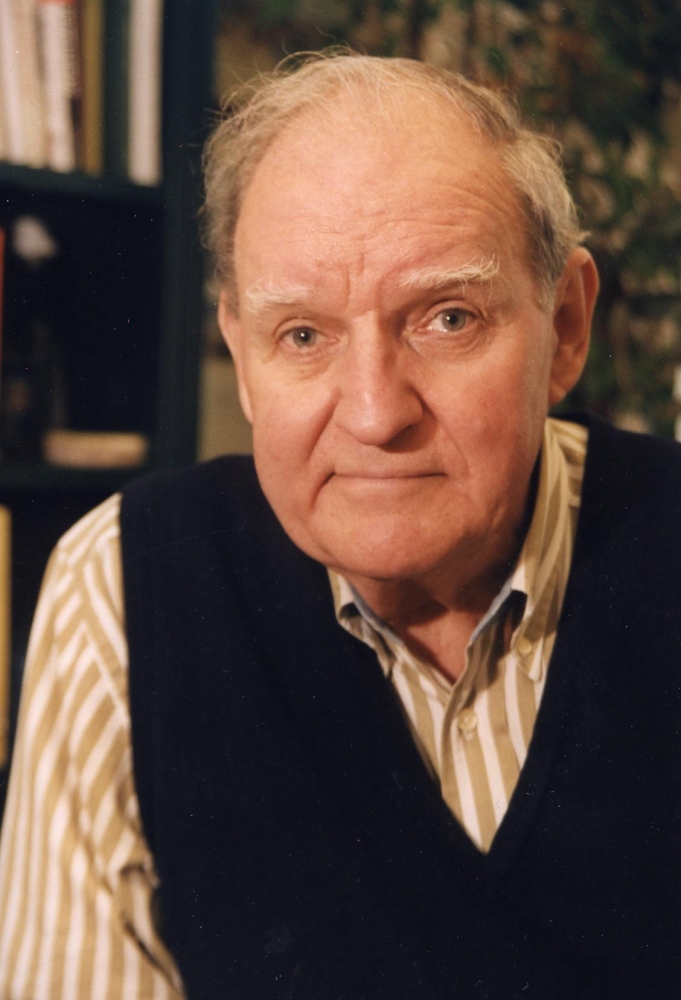
The current crisis in Darfur is but the most recent in a long history of turbulent relations between three African nations -- Chad, Libya, and Sudan -- which for more than 40 years have fought for control over the central Sahara, the Sahel, and the savanna grasslands in the greater Chad basin. This is the authoritative view of two prominent scholars -- Robert O. Collins, professor emeritus of history at the University of California, Santa Barbara, and J. Millard Burr, a former State Department analyst and director of Operation Lifeline Sudan I. They have written a book examining the factors that led to the current state of emergency in Darfur and the surrounding region.
The recently released "Darfur: The Long Road to Disaster" (Markus Wiener Publishers, 2006), is an updated and expanded version of the authors' previous book, "Africa's Thirty Years War: Libya, Chad, and the Sudan, 1963-1993" (Westview Press, 1999), in which they studied the attempts by Libyan president Muammar Qadhafi to establish an enlarged Arab Sahara/Sudanic State by invading Chad and destabilizing the Sudan in order to incorporate its western province, Dafur, into his Sudanic Libyan empire. The new edition includes two additional chapters that cover the events of the last 13 years, from the marginalization of Darfur in the 1980's and 1990's to the 2003 outbreak of the present insurgency, which has resulted in over 350,000 killed and 2.5 million refugees.
"To be sure, this is the most violent and bloody period," said Collins, "but if you look back to the 1960's, 70's, 80's and into the early 90's, you'll see the same thing in different forms."
Collins's other recent works include "A History of Sub-Saharan Africa" (Cambridge University Press, 2007), written with James A. Burns, who completed his Ph.D. at UCSB and is now associate professor of history at Clemson University, and the forthcoming "History of the Modern Sudan." In addition, an Arabic translation of "Alms for Jihad: Charities and Terrorism in the Islamic World" (Cambridge University Press, 2006), also written with J. Millard Burr, will be released this spring.
Collins first traveled to the Sudan in 1956, one month after the country gained independence from Egypt and Great Britain. He returned regularly to live and travel through every part of the country and to carry out his historical research both in archives and in the field, particularly the southern Sudan. He has published eight histories concerning the Sudan, southern Sudan, Darfur, and the Nile.
Collins became interested in Africa quite serendipitously as an undergraduate student at Dartmouth College, where he regularly studied in a library carrel that happened to be located in the stacks devoted to African studies.
"When I got tired and bored with my studies, I'd get up and wander through the stacks with all these Africa books," he said, "and after four years I had read most of them." Dartmouth offered no courses on African history at the time, but a professor of German history suggested Collins investigate a German Jew of Protestant parents who had converted to Islam and taken the name Emin Pasha. Pasha had become the Turkish governor of the Equatorial Province in the Egyptian Sudan on the upper Nile and was a well-known figure in European scientific circles.
"So I decided to write my senior thesis on how he administered the province. I wrote a 500-page dissertation about it and I've been there ever since," Collins said. "In fact, just this afternoon, 50 years later, I was writing precisely about the same country, the same people that I'd discussed in my senior thesis."
Collins joined the faculty at UC Santa Barbara in 1965 and held several positions, including dean of the Graduate Division and director of the UCSB Center in Washington, D.C., before his retirement in 1994. He continues to conduct research and teach courses on African history, and has lectured at numerous American, European, Middle Eastern, and African universities. In addition, he has been a consultant to the government of Sudan, the High Executive Council of the Southern Sudan Regional Government, Chevron Overseas Petroleum, Inc., and, during the past decade, the State Department and the Central Intelligence Agency.
Related Links



